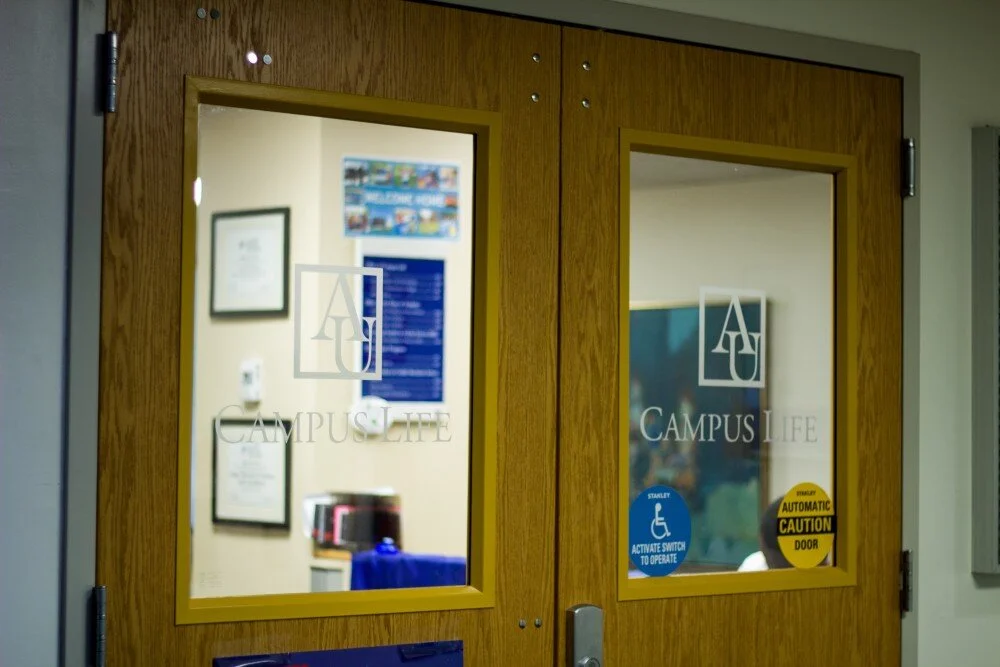Petition circulating on social media calls for a universal pass grading system
University says students should not expect the optional pass/fail system to be changed
JILLIAN O’DONOHOE/THE EAGLE
By Kelsey Carolan | April 16, 2020
After AU announced it would be adopting a pass/fail option for students’ courses for the remainder of the semester, a petition for the University to pass every student circulated around social media.
The page, called “AUniversal Pass,” was posted to Facebook on March 25, one day before the University made its decision about the pass/fail option. The petition said the pass/fail option was “wholly insufficient” because it discriminates against marginalized students and puts students who want to apply for graduate schools or scholarships at a disadvantage.
“When employers or graduate schools compare students, those who chose the pass/fail option could be deemed less deserving than those receiving a letter grade,” the AUniversal Pass Frequently Asked Questions document said. “That stigma will fall on lines of socioeconomic status, disability, race, sexual orientation and documentation status.”
Sarah Soliman, a senior in the School of International Service, said one of the reasons why she helped organize the movement was because she believes there is a trend at AU that the most impressive students are the ones who overcome adversity. She said in this case, the ones who are seen as overcoming adversity, are the ones who choose a letter grade, not the pass/fail option.
“An F does impact your GPA. An F does reflect as if it were the A through F system and yet a pass does absolutely nothing,” Soliman said, referring to the fact that pass/fail courses do not count toward a student’s GPA. “So that is a disproportionate system, putting people to fail.”
The organizers of the petition created outreach documents for students to email their professors and student organizations to advocate for the mandatory grading system. They also announced that they met with the Dean for Undergraduate Education Jessica Waters about a pass/fail option.
Waters said that while she did meet with the organizers of the petition, the University still believes they made the best decision for the students.
“People should not be expecting it to be changed,” Waters said.
Waters said the University chose for the system to be optional because they wanted to allow student flexibility, but did not want to harm student’s progress post-graduation when applying to graduate schools or jobs.
She said the University considered feedback and input from students when making their decision, as well as what AU’s peer institutions were implementing. She said that while the AUniversal Pass petition received a lot of attention, there were also many students who told her that a mandatory system would negatively impact them.
“A one-size-fits-all solution does not provide student flexibility or ownership,” Waters said.
Soliman said after they hit a “brick wall” with Waters, they decided to shift in a different direction, including advocating for partial tuition refunds. However, she said they are still focused on letting the University know their dissatisfaction.
“They cannot claim they didn’t know our struggles,” Soliman said. “They cannot claim that they did everything they can. If nothing else, you know what students wanted and you know what we asked for and we can hold you accountable for it.”

